
Index of this Page
118. Voices
119. Jeans
120. Walking
121. Amusement Parks
122. Boredom
123. Business
124. Leadership
125. Performances
***********************************************************************

Although individual hairs can be counted, the hair on a person’s head is considered to be a mass of hair and is not countable. Therefore, we say, “He has a lot of hair”, not “He has many hairs.”
A hairdresser (for females); a hair salon
A barber (for males); a barber’s shop
Bald
Curly hair
Straight hair
Long, straight hair
Short, curly hair
a crew-cut
a fringe
a ponytail
pigtails
To trim; to get a trim
Split ends
A perm https://dictionary.cambridge.org/dictionary/english/perm
Get (have) my hair dyed/ get (have) my hair tinted
Blonde; brunette, redhead
https://www.myenglishlanguage.com/essential-vocabulary/hairdressing/
https://blogs.transparent.com/english/english-vocabulary-for-getting-a-haircut/
***********************************************************************
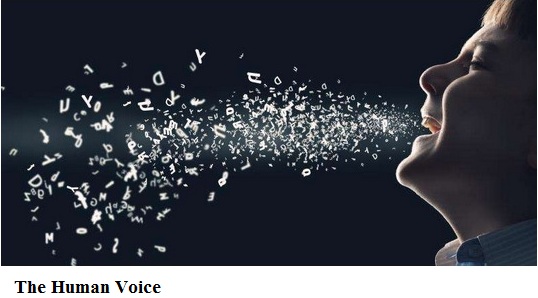
A high voice (= a high-pitched voice)
A low voice (= a low-pitched voice)
A soft voice (= gentle and low in volume)
A loud voice
“My voice broke when I was about 14.” A man describing his change of voice when he went through puberty.
A person’s voice might change temporarily when they have a cold.
Voice variability - https://phys.org/news/2017-01-human-voice-versatile.html
***********************************************************************

“Jeans”, like “pants”, “trousers” and “shorts” are not countable. We say, “a pair of jeans”, “two pairs of jeans” or, “some jeans”, “”my jeans” etc.
Denim – the material that jeans are made of, usually coloured blue.
A denim skirt; a denim dress; a denim jacket – these are not jeans but are made of the same material.
Skin-tight jeans – usually worn by women
Baggy jeans
“a pair of jeans with a rip in the leg.” (considered to be “fashionable”)
Casual wear - to “dress down”; to dress informally
Three or four decades ago, wearing jeans in some countries was considered to be “western” (and “cool” or “fashionable”), since jeans represented an aspect of the American lifestyle, and were quite expensive in some countries. This attitude still exists to some extent in many countries.
https://slate.com/culture/2005/11/the-secret-language-of-jeans.html
https://www.misssixty.com/ru_en/ready-to-wear/ready-to-wear/jeans.html?p=3
https://www.blumarine.com/en/blumarine/apparel/trousers/jeans-with-sequined-roses
***********************************************************************
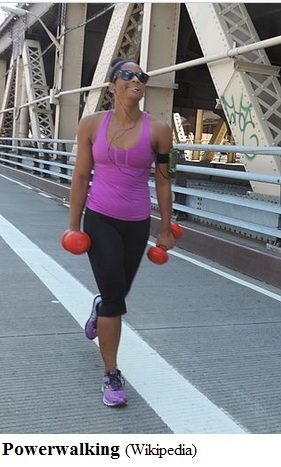
Walking –
as a means of going ‘from A to B’ (= from one place to another)
as a form of exercise
as a means of relaxing and thinking
“getting out of the house” or “getting out of the office” for a break
to get some fresh air, to have a change of scene etc.
to look at the scenery etc
to ‘stretch the legs’ - https://dictionary.cambridge.org/dictionary/english/stretch-your-legs
to walk a lot in one’s job
A pedestrian
To walk hand-in-hand (e.g., with your boyfriend or girlfriend)
A stroll, to stroll, go for a stroll https://dictionary.cambridge.org/dictionary/english/stroll
A relaxing walk
An after-dinner walk
‘Power walking’ = walking at high speed for exercise https://en.wikipedia.org/wiki/Power_walking
To strengthen the cardio-vascular system and the leg muscles
A brisk walk; walking at a fast pace
https://dictionary.cambridge.org/dictionary/english/pedometer
https://www.androidauthority.com/best-pedometer-apps-step-counter-apps-for-android-852651/
Hiking, to hike
***********************************************************************

For fun; for entertainment (amusement)
https://www.youtube.com/watch?time_continue=62&v=Mmi6le20svk&feature=emb_logo
A ride/ rides; to ride. Amusement parks have "rides", not "facilities" except for facilities such as a toilets, snack bars, parking areas etc.
Scary rides; adrenalin; excitement; exciting; thrilling; heart-stopping; to scream; nausea, to vomit, to feel giddy; fear of heights
A Ferris wheel
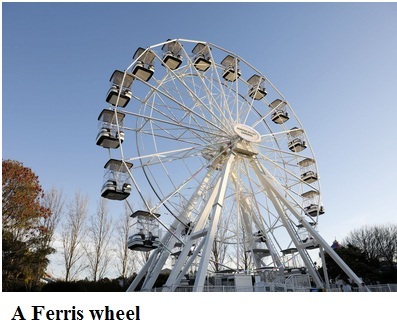
a roller coaster
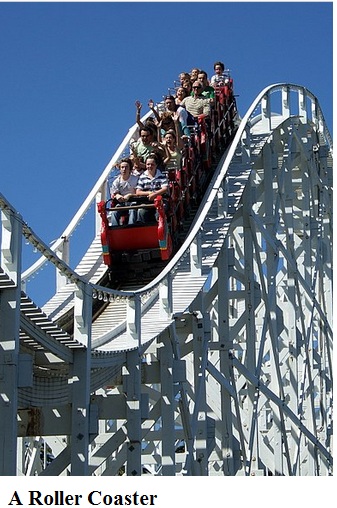
a merry-go-round
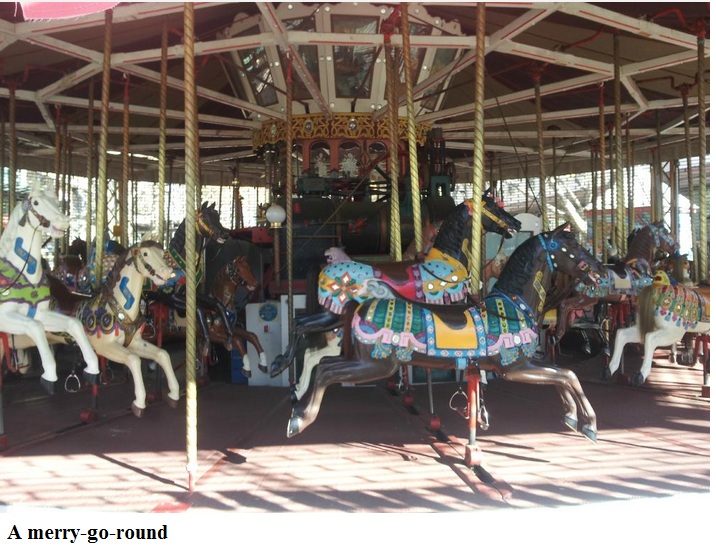
bumper cars
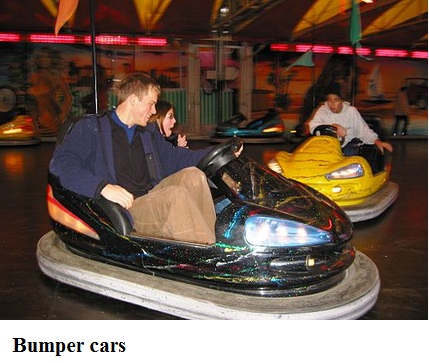
bumper boats
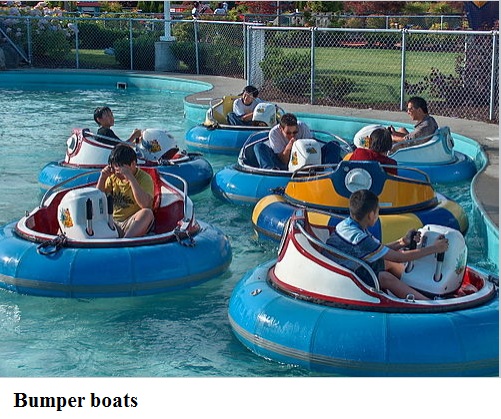
a shooting gallery
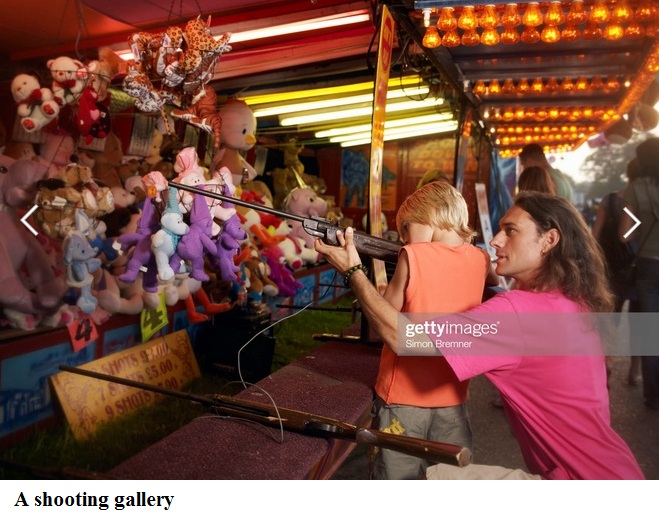
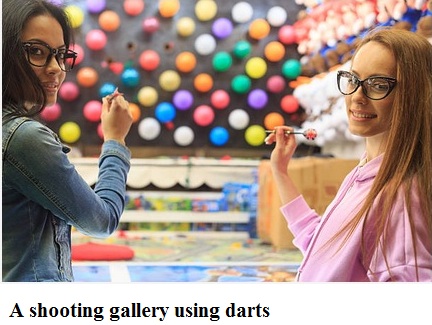
a water slide
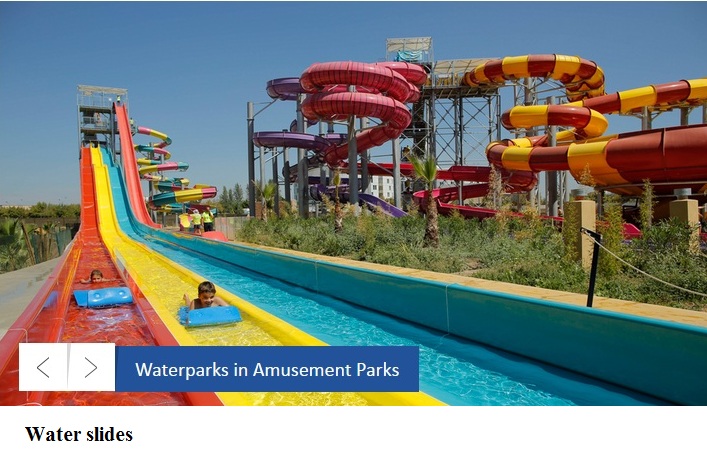
a ‘haunted house’
a gravitron – a ride based on centrifugal force
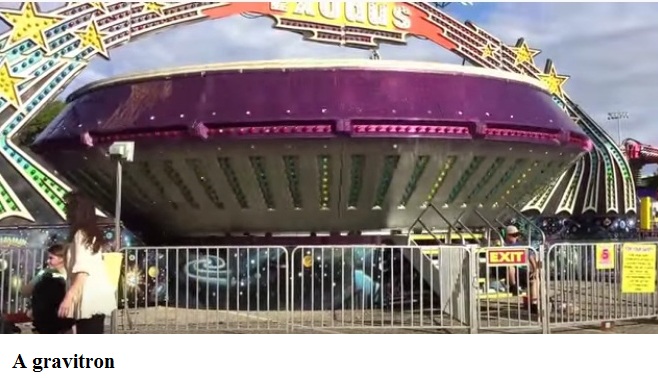
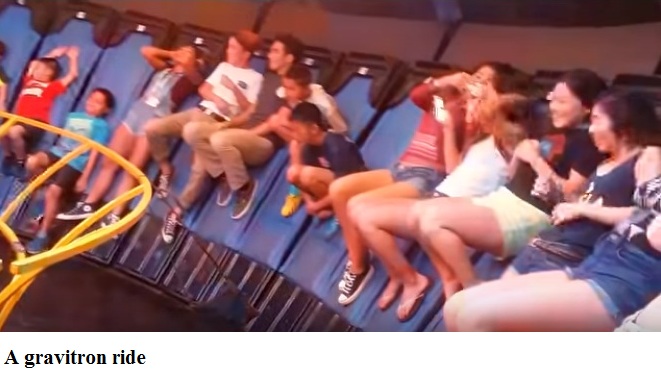
A graviton ride https://www.youtube.com/watch?v=bw59JtWPOrU
Japanese amusement parks - https://www.japan-guide.com/e/e2067.html
***********************************************************************
***********************************************************************
***********************************************************************
Not yet written
***********************************************************************
This topic is mainly about entertainment.
“Show business”
to perform, a performance, performances, a performer
The word, ‘to perform’ is also used to mean, “to carry out one’s duties”, “to do (carry out) a role”. For example, “He performed his duties satisfactorily.” See –
https://dictionary.cambridge.org/dictionary/english/perform
and
https://dictionary.cambridge.org/dictionary/english/performance
However the Part 2 & Part 3 questions in the IELTS test are referring to artistic performance, for entertainment.
The following words sometimes have the same meaning as, a ‘performance’ — an ‘act’; a ‘display’, a ‘show’, a ‘demonstration’ when they involve one or more people doing something to entertain (or sometimes, to teach) others.
Performers show or demonstrate skills that average people don’t have and/or entertain others (the audience).
Most, but not all performances are demonstrations of artistic skills such as playing a musical instrument, acting, singing and dancing. These performers can be called, “artists” even though they are not artists in the same sense as people who paint, draw, compose music, write poetry etc.
The people in the audience at one particular performance are called, “the audience” or possibly, “the members of the audience” (but it’s unnecessary to use the word, ‘members’ here), not “the audiences”.
Actors in movies, TV shows and stage plays, singers and musicians are performing when they have an audience. But, interestingly, when these people are rehearsing or practicing with no-one watching, they are not ‘performing’ (!) but simply ‘practicing’ or ‘rehearsing’. In other words, a performer needs to have an audience – if there is no audience, there is no performance.
Some examples of performances –
a movie (= a film)
a TV show (that has actors such as a drama, soap opera or comedy show)
[Note: Although movies and TV shows are, strictly speaking, ‘performances’ that involve several actors, English speakers don’t usually describe one movie or one episode of a TV show as a, ‘performance’. However, we do often use the word, ‘performance’ to describe the acting of an individual actor in a movie or TV show. For example, “XTZ played the leading role in that movie and he won an Academy Award for his excellent performance.”]
a stage play( = “theatre”)
[Note: Unlike movies and TV shows, sometimes the word, “performance” is used to describe a stage play, especially if the play is a famous one, such as the plays of Shakespeare. For example, “I saw a performance of Shakespeare’s ‘Macbeth’ on Broadway when I visited New York.”]
a concert, a pop concert, a live band or orchestral concert (= performance)
an opera = an operatic performance
a dance performance
a magic show
an acrobatic performance
a juggling act
a ventriloquist act
a mime (a miming) act / performance
a stand-up comedy show
a puppet show
a martial arts demonstration or performance
various traditional circus acts such as a trapeze act; a tightrope performing act; a comedy routine performed by clowns and even performing animals that are trained to do things that animals normally do not do (= performing “tricks”) such as a monkey riding on the back of a horse, lions jumping through burning hoops or dogs walking on their back legs
Note that almost all the examples above are compound nouns composed of two words, with the first word stressed more than the second word when spoken. For example (click to hear), “a dance performance”, “a concert performance”, “a puppet show”.
In China –
Chinese Opera (e.g., Beijing, Kunqu, Sichuan opera)
quyi 曲艺(https://www.topchinatravel.com/china-guide/quyi.htm)
There are no English names for some examples of quyi so just use the Chinese names and then immediately explain what happens in these performances.
From Wikipedia https://en.wikipedia.org/wiki/Quyi
“Quyi (Simplified: 曲艺; Traditional: 曲藝; pinyin: qǔyì) refers to such traditional art forms such as ballad singing (唱曲), Pingshu (评书), comic dialogues (小品), clapper talks (快板) and xiangsheng (相声) .[1] This group of art forms has gained in popularity since the New Culture Movement. With the exception of the Cultural Revolution period, a great number of stories written for these arts have been preserved.[2] Quyi is a Chinese performance art consisted of narrative storytelling using staged monologues and dialogues. It is mostly a spoken performance, and is generally not a full-fledged theatrical play. It should not be confused with Chinese opera.”
Shadow Play
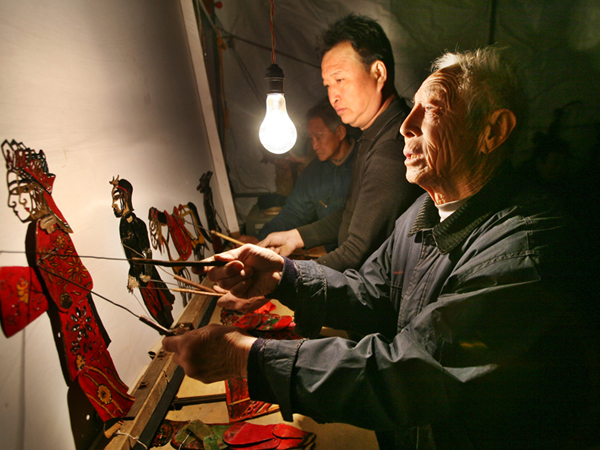
https://www.topchinatravel.com/china-guide/shadow-play.htm You could call this a “shadow puppet performance”.
Crosstalk 相声 (comedy) performance https://en.wikipedia.org/wiki/XiangshengSpectator Sorts
Most (professional) sports competitions are both contests (to find a winner) and a performance because the competitions are carried out in front of spectators (e.g., in a stadium). The purpose of spectator sports is to entertain people. The spectators play the same role as the ‘audience’ does for artistic performances such as concerts of stage plays. These spectator sports are often broadcast on TV for television audiences. Examples are professional football and basketball games, professional tennis matches etc.
Quiz shows on TV are another example of both a competition and a performance in which the competitors demonstrate their skills (their knowledge) while at the same time entertaining the viewing audience.
A speech contest (e.g., at school); a spelling contest Both are performed in front of an audience.
Street performers (buskers) who play a musical instrument, perform a juggling act etc. usually seek donations of money from passers-by for their performances.
A venue = a place where a performance takes place. The word, ‘venue’ is also used to describe a place for a meeting etc.
Some words associated with the appreciation of art, including performance art – aesthetic value (similar to ‘beauty’), entertainment value; creativity; uniqueness; cultural value . . .
Some demonstrations of how to do something (i.e., meant to teach people rather than entertain them) are a kind of performance if the demonstration involves a person acting or playing a role. For example, a demonstration of how to give first-aid, or how to save someone who is drowning. However the Part 2 & Part 3 questions in the IELTS test are referring to artistic performance, for entertainment.
Some examples of “shows” that are not really “performances” are: a fashion show, a beauty contest;
***********************************************************************